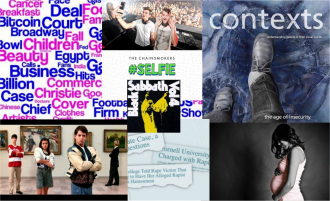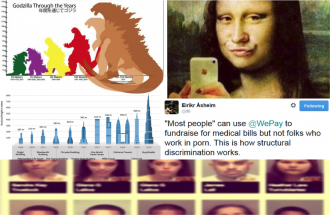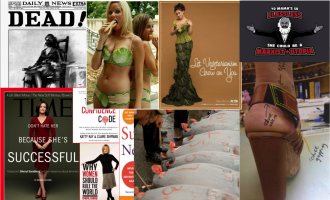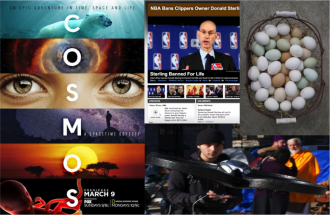
Last week I danced in my first flash mob, saw a powerful set of storytellers at a live Life of the Law event, and pontificated on public outreach with super sharp friends from JustPublics, OpenDemocracy, and LOTL. In my #LSAMN14 session for graduate students and new professors, I offered 5 bits of advice for those eager to write for a public audience.
1. Use your expertise. Make it about your expert knowledge as a social scientist rather than your views as a citizen. Use the command and authority you’ve developed on a project to really break it down for the rest of us.
2. Don’t wait for tenure. Graduate students and assistant professors today should develop an online presence. And writing short pieces for the public can often offer accessible calling cards to your work and interests.
3. Timing matters. Don’t just react to the news by beginning a new piece. Have some ideas and drafts that you can work up quickly when the time is right. Many events are seasonal or predictable (e.g., back to school season, election season, release-of-crime-statistics season), so write now for August or December.
4. Avoid zero-sum thinking. Public work need not detract from your research. In my experience, my journal articles and public posts tend to be mutually reinforcing and complementary rather than competing substitutes for one another. Staying in touch with journalists, for example, helps me stay on top of new developments in my field. And the more you write, the easier writing becomes.
5. Use your editor! There’s a premium on brevity & clarity in public writing. My first op-eds were a sea of red ink, as sharp editors reduced both my word count and my syllable-per-word count by at least 50 percent. And, in my experience at TSP and Contexts, the most famous and highly regarded experts in the field tend to be most amenable to smart editing. They get it.
In the spirit of brevity and humility about the limits of my own expertise, I’ll close by repeating the best bit of advice I learned in school — what I’ve come to call the Wu Admonition: “Remember, Chris, that not all advice is good advice.”

 Semesters come and go, but The Society Pages, much like the rest of society, keeps on keeping on, summer, spring, winter, or fall. Last week we finished up delivering the content for our next TSP volume (Owned, a look at the new sociology of debt), this week we’ll have our editorial “Retreat to Move Forward” (h/t “30 Rock,” though without the Six Sigma), and next week we’ll deliver the content for the fifth TSP volume, a culture reader. Last week also saw the arrival of the latest issue of the ASA’s Contexts magazine, with all content available online for free for the first time ever. Like anyone, when we’re mired in this much work, it’s often hard to see the milestones as true achievements or notice the big picture project that’s getting accomplished day by day. To that end, let me be the first to say congratulations to The Society Pages on its first five books, its first two years, and its tremendous achievements in using sociology to contextualize the news.
Semesters come and go, but The Society Pages, much like the rest of society, keeps on keeping on, summer, spring, winter, or fall. Last week we finished up delivering the content for our next TSP volume (Owned, a look at the new sociology of debt), this week we’ll have our editorial “Retreat to Move Forward” (h/t “30 Rock,” though without the Six Sigma), and next week we’ll deliver the content for the fifth TSP volume, a culture reader. Last week also saw the arrival of the latest issue of the ASA’s Contexts magazine, with all content available online for free for the first time ever. Like anyone, when we’re mired in this much work, it’s often hard to see the milestones as true achievements or notice the big picture project that’s getting accomplished day by day. To that end, let me be the first to say congratulations to The Society Pages on its first five books, its first two years, and its tremendous achievements in using sociology to contextualize the news.



